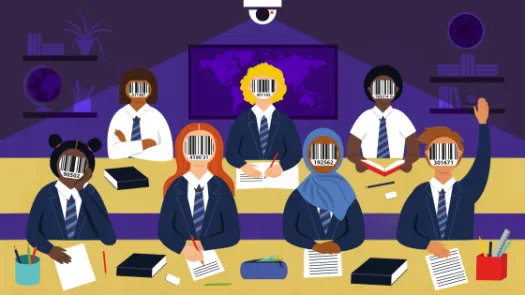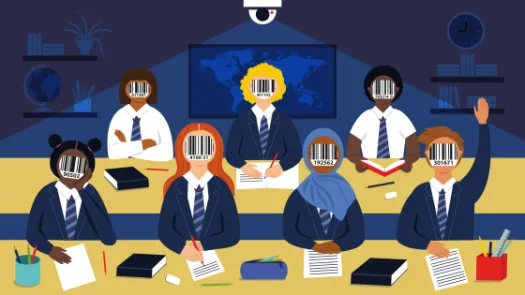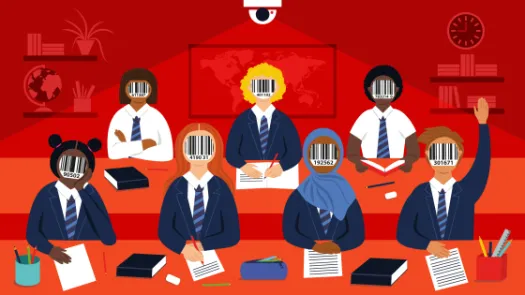
UN expert recommends ban on facial recognition in schools.
Facial recognition technology harms children’s education, and should be banned from educational institutions, UN Expert says.

Também disponível em português
The UN Special Rapporteur on the right to education published her report on academic freedom, which recommends that states ban facial recognition technologies from educational institutions.
Brazil’s educational system - which is built on the fundamental value: the best interest of the child, is one of the world’s worst offenders. So far 1,667 schools in the state of Paraná alone have adopted a technology that the UN’s leading expert believes threatens student’s academic freedom.
Facial recognition is not in any child’s best interest. Especially not black children, who have been found to be misidentified by the technology more regularly than their white classmates. Moreover, technologies that utilize facial recognition to try and detect facial expressions and infer emotions - similar to those being trialed in Paraná - have been found to wrongly categorize black people’s expressions more negatively, angrier, more disdainful, than their white counterparts. But research shows that the states rolling out facial recognition in schools wouldn’t know that, as they couldn’t be bothered to check - missing out vital safeguards on the technology.
Facial recognition is not in the best interest of the child’s right to education. It is a deeply intrusive form of surveillance, which transforms what should be a supportive environment designed to foster a child’s development into a high security environment in which children’s every move is recorded and categorized. Studies have shown that the chilling effect created by surveillance can lead to the erosion of interpersonal trust - so vital to the teacher and student relationship and to quality education - increased self-censorship, an amplified awareness of surroundings, and greater restraint in political conversations, far from allowing autonomous development.
Facial recognition is also not in the best interest of the child’s future. Where data is collected, it can be compromised – particularly if schools are not adequately evaluating the technical capabilities of the software they are purchasing, which they are not. This is particularly damaging when data is as sensitive and personal as biometric data. Children cannot easily change their faces they way they can change a password, a pin, or a key card.
Brazil is a significant part of a trend of the adoption of facial recognition in schools - despite what looks, at first glance, to be a world leading regime of child protection laws. It’s time for Brazil to live up to the promise of those laws, and - as the UN’s leading expert of the right to education recommends - ban facial recognition in schools.


